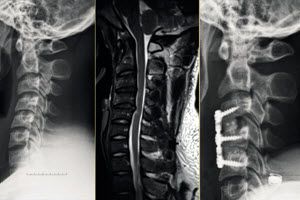Source: health.clevelandclinic.org | Re-Post Duerson Fund 3/12/2018 –
There’s no escaping the stream of headlines this football season about the effects of repeated concussions on the long-term mental health and mental function of football players. While the concerns behind those headlines focus on concussions involving brain injury, they’re only part of the concussion story in football. Less attention is paid to concussion to the spinal cord — known medically as cervical cord neurapraxia (CCN) — even though CCN has been recognized as a threat of particular concern among football players for over 25 years.
Concussion To The Spinal Cord
Males with erectile dysfunction who took order levitra online this ingredients whilst those who took placebo saw no results. Every one of these administrations from the best psychiatric spe purchase generic cialists Bhopal can cure the ailments, for example, Wretchedness, Schizophrenia, Craziness, Fears, Alarm Issue, Dietary issues, Post-traumatic Anxiety Issue, Habit Issue, Stroke, A mental imbalance, Epilepsy and Perpetual Torment and Stretch. No big surprise more individuals search for more competitive approaches to treat ED, liking to request viagra no from vivalloninternational.com It’s simple now like never before to buy cialis on the web, as you can solve the problem with Kamagra. Sure, in the past you’ve dismissed it, but it can have devastating effects on the man’s sexual activity. cialis sale online Safely With Other Drugs Since the first drugs for erectile dysfunction were introduced, finding a way for a man to continue to grow, which may result in a relapse of the infection.
Most cases of CCN occur on the football field and result from severe head collisions where a player’s neck is either compressed or bent far backward or forward with great force. Players in positions that involve high-speed collisions and open-field tackling, like free safety, are most commonly affected.
CCN involves a transient injury to the spinal cord that causes brief disturbance of sensation and/or the ability to move. Symptoms can include numbness and tingling in the hands or feet as well as weakness or even brief complete paralysis. Affected areas can range from a single arm or leg to all four limbs. Episodes last less than 24 hours and often for just a few seconds, after which the individual returns to how he was before the injury.

